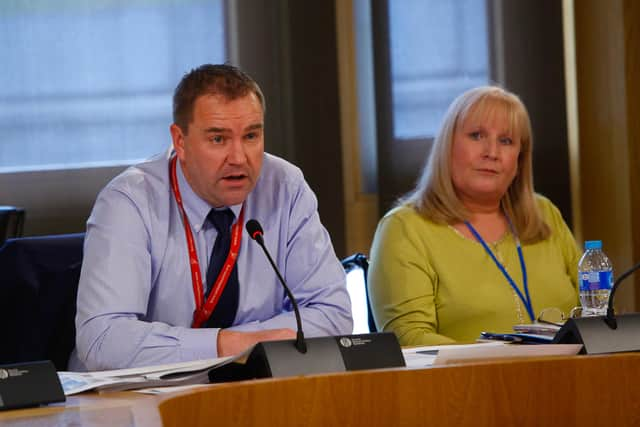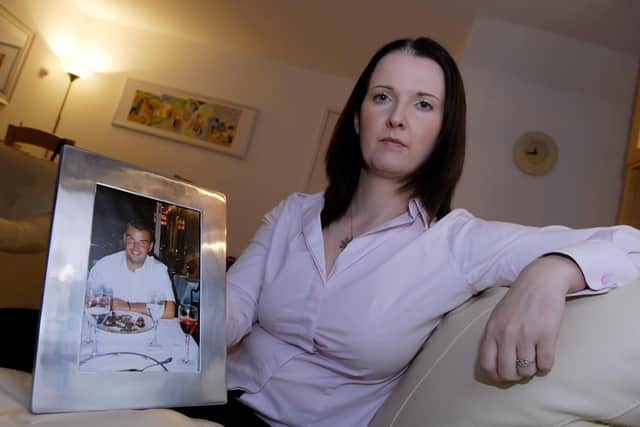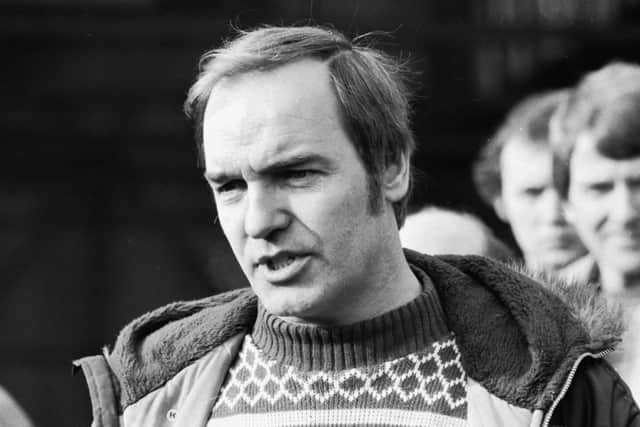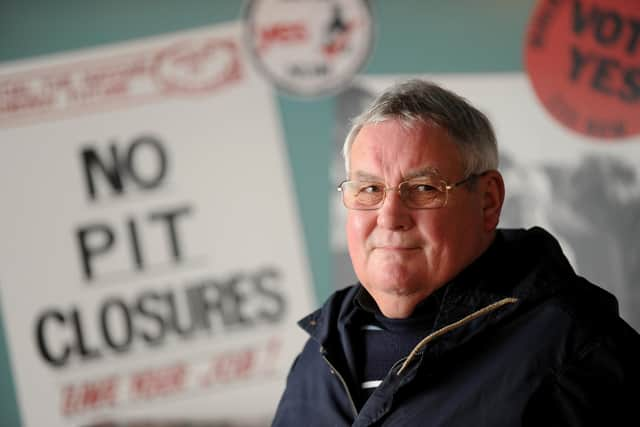Former MSP Neil Findlay's new book tells stories of ordinary people's fight for justice
and live on Freeview channel 276
Now he has interviewed many of them and published a book bringing together the stories of their heroic efforts.
From the work-in by British Leyland workers at Bathgate in 1982 to those caught up in the Grenfell tragedy in 2017 and the Scottish mesh survivors, whose campaign for justice is still going on, the book allows those who took part in the campaigns to recount what happened in their own words and reflect on what can be learned from their experiences.
Advertisement
Hide AdAdvertisement
Hide AdThe book is entitled "If you don't run they can't chase you" – a quote from former miners' leader Mchael McGahey, urging his members to stand up to the actions of


their employer, the government and the state.
Mr Findlay said it summed up the spirit of the people featured in the book.
"My premise for it was you have a lot of young people coming into campaigning and activism, whether it's Momentum, Brexit, independence, the environment or whatever.
"And there is a real opportunity for inter-generational learning between those young people coming in and applying new methods and people who have been through it all and were doing the same thing in different era.
Advertisement
Hide AdAdvertisement
Hide Ad

"Over quite a period, just as and when the opportunity arose, I interviewed people from a number of campaigns.
"I recorded it and kept my input very light-touch because I wanted it in their words, telling how they got involved, how the campaign developed, what happened and then reflecting on what they learned from it and the lessons there are for the future."
Louise Adamson, whose brother Michael was killed at work in 2005, talks in the book about her anger at being failed by the justice system and her work with Families Against Corporate Killing, campaigning to beef up a “weak and toothless” law.
Even though they did not succeed in amending the legislation, they have not relented in arguing the case.
Advertisement
Hide AdAdvertisement
Hide Ad

She says: “Progress is made by collective effort. That is how you bring about change. In campaigns, you need good people around you who understand the positives of what you’re aiming to achieve. For me, it was important they didn’t just see the misery and devastation of what happened, but that we were trying to turn that into positive good. It’s not about wallowing, it’s not about self-pity: it’s about making positive change for other people.”
Mr Findlay said: "If you look at the desperate state of politics and world affairs at the moment it's easy to be downbeat and dismayed with all that's been going on from the economic crisis right up to the situation in Afghanistan."
But he said there was no time for despair. "What we need to do is organise and campaign and fight back. That's part of what I'm trying to get across, that no matter what has happened in history the people in the book show that if people come together and build campaigns ordinary people and achieve extraordinary things. And there's no time that's more required than the present day."
Bathgate fight for jobs sparked work-in instead of strike


Shop steward Jim Swan was at the heart of the action in January 1982 when workers at British Leyland's Bathgate plant - which manufactured trucks, vans and tractors - began a "work-in" after the company sold its tractor division to Marshall Tractors.
Advertisement
Hide AdAdvertisement
Hide Ad"Thatcher saw the British Leyland car workers as well-organised and wanted to take us on. We called a mass meeting and said to the workers, ‘We want you to give the union “a fighting pound a week”. This will allow us to use your money to organise properly and stop any tractor going to Marshall Tractors. We will keep them here.’ And for weeks, we did that."
The work-in was sparked when the management targeted those who refused to move the tractors.
"Instead of coming out on strike, we decided to occupy the factory and leaked this to the press, who turned up in big numbers. We had agreed between us who would walk out and who would stay behind to work as part of the occupation. The BBC news and the papers were full of the story.
"We were now locked in. The company had left people in to ensure we did not cause damage, but we had no intention of causing damage as this was our factory and our jobs we were fighting for."
Advertisement
Hide AdAdvertisement
Hide AdThe threat of legal action led to the occupation being called off, but then it was reported British Leyland planned to close the factory altogether.
"The next day we had held a mass meeting and the stewards called everybody out and reoccupied the factory. When the police were called, they said they could only remove us via a court order and went away. This occupation lasted for another two months. The government and management wanted to close the factory quickly, butwe got two more years out of it. The union controlled the closure of the factory instead of allowing it to happen at breakneck speed."
Solidarity from around the world for Midlothian miners
Alex Bennett chairman of the NUM branch at Monktonhall colliery during the year-long miners’ strike of 1984–85 h and was arrested for breach of the an outside Bilston Glen, lost his job and was blacklisted by employers.
“When we went out, we got organised quickly, forming a strike committee, giving people different jobs. In the Lothians I got the job of setting up a hardship fund to help those in most need. There was a lot of picketing at Bilston Glen, where one man continued to work, but at Monktonhall the strike was 100 per cent solid and we had a picket line every day.
Advertisement
Hide AdAdvertisement
Hide Ad“Being responsible for the hardship fund, I saw and heard some terrible things. I had to go down to Niddrie Mill to meet one of our guys who was struggling. His neighbour had phoned me raising her concerns. He lived on his own and all he had left in the house was a chair, a table and a phone – he had sold everything. He even sold his coal to the local coal man.
“There was tremendous solidarity shown to us from across the world. We got food parcels from the Soviet Union, and many other countries donated money, toys, holidays and much more.
“We set up soup kitchens to feed people. The women’s support group were outstanding, and they were key to the strike lasting so long. The men were encouraged and supported by their wives and partners; they were not being nagged to go back, even though there were huge pressures on families. Every day in the local clubs there was a lunch put on. I will never eat corned beef again!”
Eventually, the national executive of the NUM recommended a return to work.
Advertisement
Hide AdAdvertisement
Hide Ad“We met in Danderhall Miners’ Club to discuss the decision and I had to chair what was a very difficult meeting, as feelings were running high and many people had different views. In the end we decided, ‘We have been on strike for a year together, let’s go back to work together!’ So, we organised buses and the pipe band and the banners and the men and their families to lead us back.”
A message from the Editor:
Thank you for reading this article. We're more reliant on your support than ever as the shift in consumer habits brought about by coronavirus impacts our advertisers.
If you haven't already, please consider supporting our trusted, fact-checked journalism by taking out a digital subscription.
Comment Guidelines
National World encourages reader discussion on our stories. User feedback, insights and back-and-forth exchanges add a rich layer of context to reporting. Please review our Community Guidelines before commenting.
